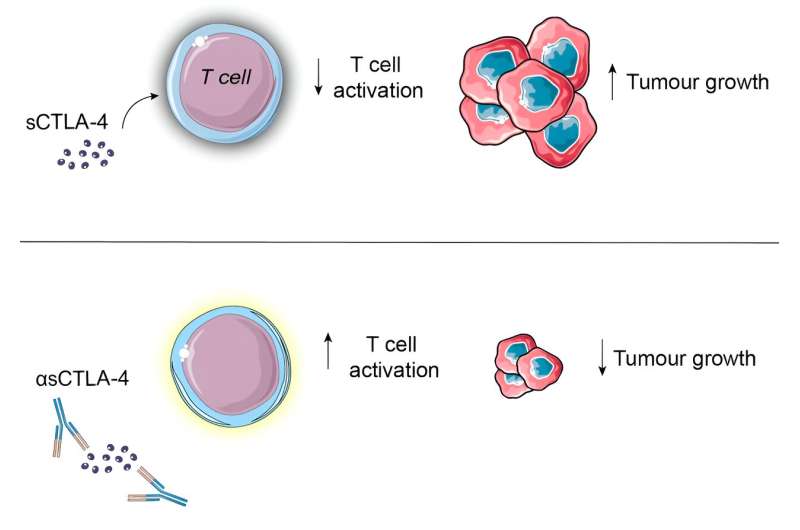This article has been reviewed according to Science X's editorial process and policies. Editors have highlighted the following attributes while ensuring the content's credibility:
fact-checked
peer-reviewed publication
trusted source
proofread
New mechanism with potential to boost checkpoint-blocking cancer immunotherapies identified

Researchers at the University of Aberdeen working on a partnership study that looks at how the immune system could help improve cancer treatment have found a potential new way to aid and develop better cancer therapies.
Together with colleagues at the University of Liverpool and the Center for Cancer Immunology at the University of Southampton, researchers examined the role of CTLA-4, a cell surface molecule that plays a crucial role in the immune system.
Known as a "checkpoint" receptor responsible for maintaining immune balance and tolerance, CTLA-4 works to prevent the immune system becoming too active at the end of a normal immune response. However, it is also subverted by cancer cells to prevent the immune system from attacking them.
Researchers developed antibodies targeting CTLA-4 and these have shown promise in treating various cancers. However, the exact mechanisms behind their anti-tumor effects have remained elusive and there are issues with immune toxicity.
The new work sheds light on this and reveals there is also an overlooked form of CTLA4, that is released from the cell, known as soluble CTLA-4 (sCTLA-4). The research team investigated sCTLA-4's potential impact on cancer immunotherapy and explored the functional properties of sCTLA-4 and tested the effectiveness of a specific antibody targeting sCTLA-4.
In the study, published in Molecular Therapy, they found that tumors expressing sCTLA-4 inhibited the activity of cytotoxic cancer-killing T-cells leading to the cancer growing and spreading more rapidly.
However, when the researchers blocked sCTLA-4 with a specific antibody, this suppression was reversed, and the T-cells were able to find and attack the cancer.
Dr. Frank Ward, an inventor of this technology, at the University of Aberdeen, said, "Immunotherapy relies on boosting immunity to destroy cancers, so it is important to identify and remove molecules that help cancers escape detection by the immune system.
"Together with my colleagues, Lekh Dahal and Paul Kennedy at the University of Liverpool and Professor Mark Cragg at the Cancer Immunology Center in Southampton, we have shown that when cancers produce sCTLA-4, they grow faster and so selectively blocking its activity should allow an effective route to improved immunotherapies."
More information: Paul T. Kennedy et al, Soluble CTLA-4 attenuates T cell activation and modulates anti-tumor immunity, Molecular Therapy (2023). DOI: 10.1016/j.ymthe.2023.11.028




















